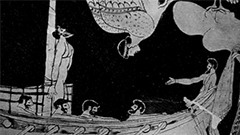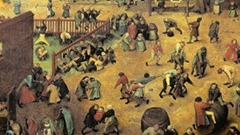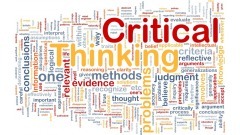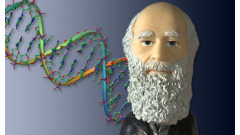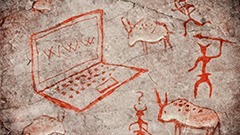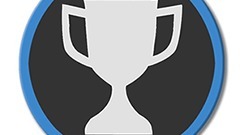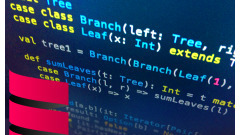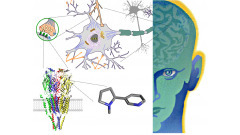 Your new post is loading...
 Your new post is loading...
Jonathan Tomkin Illinois Start: 27 August 2012 (8 weeks)
Workload: 8-10 hours/week
Physical & Earth Sciences This course introduces the academic discipline of sustainability and explores how today’s human societies can endure in the face of global change, ecosystem degradation and resource limitations. The course focuses on key knowledge areas of sustainability theory and practice, including population, ecosystems, global change, energy, agriculture, water, environmental economics and policy, ethics, and cultural history. This subject is of vital importance, seeking as it does to uncover the principles of the long-term welfare of all the peoples of the planet. As sustainability is a cross-disciplinary field of study, this foundation requires intellectual breadth: as I describe it in the class text, understanding our motivations requires the humanities, measuring the challenges of sustainability requires knowledge of the sciences (both natural and social), and building solutions requires technical insight into systems (such as provided by engineering, planning, and management).
Dave Ward, Duncan Pritchard, Michela Massimi, Suilin Lavelle, Matthew Chrisman, Allan Hazlett, Alasdair Richmond University of Edinburgh Start: 28 January 2013 (7 weeks)
Workload: 1-2 hours/week
Humanities and Social Sciences This course will introduce you to some of the most important areas of research in contemporary philosophy. Each week a different philosopher will talk you through some of the most important questions and issues in their area of expertise. We’ll begin by trying to understand what philosophy is – what are its characteristic aims and methods, and how does it differ from other subjects? Then we’ll spend the rest of the course gaining an introductory overview of several different areas of philosophy. Topics you’ll learn about will include: • Epistemology, where we’ll consider what our knowledge of the world and ourselves consists in, and how we come to have it; • Philosophy of science, where we’ll investigate foundational conceptual issues in scientific research and practice;
• Philosophy of Mind, where we’ll ask questions about what it means for something to have a mind, and how minds should be understood and explained;
• Moral Philosophy, where we’ll attempt to understand the nature of our moral judgements and reactions – whether they aim at some objective moral truth, or are mere personal or cultural preferences, and;
• Metaphysics, where we’ll think through some fundamental conceptual questions about the nature of reality.
Michael Genesereth Stanford University Start: 24 September 2012 (7 weeks)
Workload: 5-7 hours/week
Computer Science: Theory
Mathematics In this course, you will learn how to formalize information and reason systematically to produce logical conclusions. We will also examine logic technology and its applications - in mathematics, science, engineering, business, law, and so forth. Logic is one of the oldest intellectual disciplines in human history. It dates back to the times of Aristotle; it has been studied through the centuries; and it is still a subject of active investigation today. This course is a basic introduction to Logic. It shows how to formalize information in form of logical sentences. It shows how to reason systematically with this information to produce all logical conclusions and only logical conclusions. And it examines logic technology and its applications - in mathematics, science, engineering, business, law, and so forth. The course differs from other introductory courses in Logic in two important ways. First of all, it teaches a novel theory of logic that improves accessibility while preserving rigor. Second, the material is laced with interactive demonstrations and exercises that suggest the many practical applications of the field.
Ronen Plesser Duke University Start: 27 November 2012 (9 weeks)
Workload: 6-8 hours/week
Physical & Earth Sciences An introduction to astronomy through a broad survey of what we know about the universe and how we know it. In this class, we will be studying, quite literally, everything in the universe. We will start with "classical" astronomy, describing the night sky and organizing what we see as was done in ancient times. We will then embark on a journey, starting here on Earth and progressing outward, to study the Solar system, the Milky Way galaxy, and the wonderful and strange objects we observe in deep space, such as black holes, quasars, and supernovae. We will end with some discussion of what scientists know today about the universe as a whole. Along the way we will introduce some of the methods, theoretical and experimental, that have been used to understand all of this, from Newton's laws, through our understanding of light and matter, to Einstein's theory of relativity, and from Galileo's telescope to WMAP.
Barbara Endicott-Popovsky University of Washington Learn to defend and protect vital company information using the latest technology and defense strategies. Analyze internal and external threats to proactively prevent information attacks. Gain experience by solving real-world problems and leave the class equipped to establish and oversee information security. Explore the latest techniques for securing information and its systems, from policies and procedures to technologies and audit. Learn from leading experts who share proven practices in areas such as mobile workforce safety, security metrics, electronic evidence oversight and coping with e-crime and e-discovery. Study the protection of Cloud computing information. Discover how to foster the development of future information security leaders. Topics covered include: • Information security strategies and individual privacy
• Legal security implications
• Medical health record confidentiality and integrity
• Cutting-edge technologies
Wen-mei W. Hwu Illinois Start: 24 September 2012 (6 weeks)
Workload: 6-8 hours/week
Computer Science: Systems, Security, Networking
Computer Science: Programming & Software Engineering This course teaches the use of CUDA/OpenCL, OpenACC, and MPI for programming heterogeneous parallel computing systems. It is application oriented and only introduces necessary technological knowledge to solidify understanding. All computing systems, from mobile to supercomputers, are becoming heterogeneous parallel computers using both multi-core CPUs and many-thread GPUs for higher power efficiency and computation throughput. While the computing community is racing to build tools and libraries to ease the use of these heterogeneous parallel computing systems, effective and confident use of these systems will always require knowledge about the low-level programming interfaces in these systems. This course is designed for students in all disciplines to learn the essence of these programming interfaces (CUDA/OpenCL, OpenMP, and MPI) and how they should orchestrate the use of these interfaces to achieve application goals. The course is unique in that it is application oriented and only introduces the necessary underlying computer science and computer engineering knowledge needed for understanding. It covers data parallel execution model, memory models for locality, parallel algorithm patterns, overlapping computation with communication, and scalable programming using joint MPI-CUDA in large scale computing clusters. It has been offered as a one-week intensive summer school for the past four years. In the past two years, there have been ten video-linked academic sides with a total of more than two hundred students each year.
Henry Perry Johns Hopkins Bloomberg School of Public Health Start: January 2013 (4 weeks)
Workload: 3-4 hours/ week
Health and Society & Medical Ethics This course explores why primary health care is central for achieving Health for All. It provides examples of how primary health care has been instrumental in approaching this goal in selected populations and how the principles of primary health care can guide future policies and actions. Two of the most inspiring, least understood, and most often derided terms in global health discourse are “Health for All” and “Primary Health Care.” In this course, we will explore these terms in the context of global health, their origins and meanings, the principles upon which they rest, and examples of how these principles have been implemented both at small scale as well as at large scale. We will also explore some ultra-low-cost approaches to Health for All through primary health care and the promise that primary health care holds for eventually achieving Health for All. The course consists of six one-hour lectures with readings and opportunities for discussions among those taking the course and interactions with the professor.
Peter Struck Penn University of Pennsylvania Start: September 2012 (10 weeks)
Humanities and Social Sciences This course will focus on the myths of ancient Greece and Rome, as a way of exploring the nature of myth and the function it plays for individuals, societies, and nations. Myths are traditional stories that have endured over a long time. Some of them have to do with events of great importance, such as the founding of a nation. Others tell the stories of great heroes and heroines and their exploits and courage in the face of adversity. Still others are simple tales about otherwise unremarkable people who get into trouble or do some great deed. What are we to make of all these tales, and why do people seem to like to hear them? This course will focus on the myths of ancient Greece and Rome, as a way of exploring the nature of myth and the function it plays for individuals, societies, and nations. We will also pay some attention to the way the Greeks and Romans themselves understood their own myths. Are myths subtle codes that contain some universal truth? Are they a window on the deep recesses of a particular culture? Are they a set of blinders that all of us wear, though we do not realize it? Or are they just entertaining stories that people like to tell over and over? This course will investigate these questions through a variety of topics, including the creation of the universe, the relationship between gods and mortals, human nature, religion, the family, sex, love, madness, and death.
Matthew O. Jackson, Yoav Shoham Stanford University Start: TBA (7 weeks)
Workload: 5-7 hours/week
Computer Science: Theory
Economics & Finance The course will provide the basics: representing games and strategies, the extensive form (which computer scientists call game trees), Bayesian games (modeling things like auctions), repeated and stochastic games, and more. Popularized by movies such as "A Beautiful Mind", game theory is the mathematical modeling of strategic interaction among rational (and irrational) agents. Beyond what we call 'games' in common language, such as chess, poker, soccer, etc., it includes the modeling of conflict among nations, political campaigns, competition among firms, and trading behavior in markets such as the NYSE. How could you begin to model eBay, Google keyword auctions, and peer to peer file-sharing networks, without accounting for the incentives of the people using them? The course will provide the basics: representing games and strategies, the extensive form (which computer scientists call game trees), Bayesian games (modeling things like auctions), repeated and stochastic games, and more. We'll include a variety of examples including classic games and a few applications.
Jeremy Knox, Sian Bayne, Hamish Macleod, Jen Ross, Christine Sinclair University of Edinburgh Start: January 2013 (5 weeks)
Workload: 3-5 hours/week
Education This course will explore how digital cultures and learning cultures connect, and what this means for e-learning theory and practice. E-learning and Digital Cultures is aimed at teachers, learning technologists, and people with a general interest in education who want to deepen their understanding of what it means to teach and learn in the digital age. The course is about how digital cultures intersect with learning cultures online, and how our ideas about online education are shaped through “narratives”, or big stories, about the relationship between people and technology. We’ll explore some of the most engaging perspectives on digital culture in its popular and academic forms, and we’ll consider how our practices as teachers and learners are informed by the difference of the digital. We’ll look at how learning and literacy is represented in popular digital-, (or cyber-) culture. For example, how is ‘learning’ represented in the film The Matrix, and how does this representation influence our understanding of the nature of e-learning? On this course, you will be invited to think critically and creatively about e-learning, to try out new ideas in a supportive environment, and to gain fresh perspectives on your own experiences of teaching and learning. The course will begin with a ‘film festival’, in which we’ll view a range of interesting short films and classic clips, and begin discussing how these might relate to the themes emerging from the course readings. We will then move on to a consideration of multimodal literacies and digital media, and you’ll be encouraged you to think about visual methods for presenting knowledge and conveying understanding. The final part of the course will involve the creation of your own visual artefact; a pictorial, filmic or graphic representation of any of the themes encountered during the course, and you‘ll have the opportunity to use digital spaces in new ways to present this work. E-learning and Digital Cultures will make use of online spaces beyond the Coursera environment, and we want some aspects of participation in this course to involve the wider social web. We hope that participants will share in the creation of course content and assessed work that will be publicly available online.
Paolo Prandoni, Martin Vetterli École Polytechnique Fédérale de Lausanne Start: February 2013 (8 weeks)
Workload: 8-10 hours/week
Electrical and Materials Engineering Learn the fundamentals of digital signal processing theory and discover the myriad ways DSP makes everyday life more productive and fun. The goal of the course is to develop a complete working set of digital signal processing notions from the ground up. DSP is arguably at the heart of the “digital revolution” that, in the space of just a few decades, has enabled unprecedented levels of interpersonal communication and of information availability. In the class, starting from the basic definitions of a discrete-time signal, we will work our way through Fourier analysis, filter design, sampling, interpolation and quantization to build a DSP toolset complete enough to analyze a practical communication system in detail. Hands-on examples and demonstration will be routinely used to close the gap between theory and practice.
Dan Boneh Stanford University Start: 21 January 2013 (6 weeks)
Workload: 6-8 hours/week
Computer Science: Theory
Computer Science: Systems, Security, Networking Learn about the inner workings of cryptographic primitives and protocols and how to apply this knowledge in real-world applications. Cryptography is an indispensable tool for protecting information in computer systems. This course is a continuation of Crypto I and explains the inner workings of public-key systems and cryptographic protocols. Students will learn how to reason about the security of cryptographic constructions and how to apply this knowledge to real-world applications. The course begins with constructions for digital signatures and their applications. We will then discuss protocols for user authentication and zero-knowledge protocols. Next we will turn to privacy applications of cryptography supporting anonymous credentials and private database lookup. We will conclude with more advanced topics including multi-party computation and elliptic curve cryptography. Throughout the course students will be exposed to many exciting open problems in the field. The course will include written homeworks and optional programming labs. The material is self-contained, but the course assumes knowledge of the topics covered in Cryptography I as well as a basic understanding of discrete probability theory.
Celine Caquineau, Mayank Dutia University of Edinburgh Start: 28 January 2013 (5 weeks)
Workload: 3-4 hours/week
Health and Society & Medical Ethics
Physical & Earth Sciences
Biology & Life Sciences In this course you will develop and enhance your ability to think critically, assess information and develop reasoned arguments in the context of the global challenges facing society today. Critical thinking is the ability to gather and assess information and evidence in a balanced and reflective way to reach conclusions that are justified by reasoned argument based on the available evidence. Critical thinking is a key skill in the information age, valuable in all disciplines and professions. This introductory course will give you the opportunity to better understand what critical thinking is, and to practice and enhance your critical thinking skills. To do so, we will use the context of some important global challenges that affect us all, and to which we have no clear “correct” solutions: for example, the risk and spread of serious infectious diseases in epidemics in modern societies, the implications of increasing human population on global resources, energy, environment and climate, and the challenges of human health and wellbeing in the modern world. Possible solutions to global issues such as these are hotly debated, and give the perfect setting to practice recognizing and evaluating facts, ideas, opinions and arguments. The relevant background information for each global challenge will be provided to ensure that you can complete the exercises. Note, however, this course is not a course on these global challenges themselves; instead it uses the context of these thought-provoking challenges to practice critical thinking.
|
Mitchell Duneier Princeton University Start: February 2013 (7 weeks)
Workload: 5-7 hours per week
Humanities and Social Sciences In this class we will cover the essentials of sociology, to help you better understand your own life and situations far from your experience. We live in a world that is changing very quickly. Sociology gives us the tools to understand our own lives and those quite remote from us. The premise of this class is that in order to benefit from the sociological perspective, we need to learn how to ask certain basic questions. We need to know how to seek answers through methods that strive to be systematic and generalizable.We will begin with some of the essential questions: How are the things that we take to be natural socially constructed? How do we live today? How determined is social life? Does the individual make a difference? How is social order possible? Then we will ask what techniques are available to make sense of these questions. We will review comparative, historical, demographic, experimental, and ethnographic methods. Along the way, we will study core concepts including ethnocentrism, social networks, community, unanticipated consequences, social capital, race, class, and gender. We will strive to understand how interaction in micro-level contexts affects larger social processes and how such macro-level processes influence our day to day lives. We will learn to conceive of inequality by asking how race, class, and gender work in tandem. We will address one of the crises of recent sociology -- whether we can actually isolate the effects of social context. We will think about how social science is changing at a time when we are literally swimming in oceans of data generated by the internet.
Keith Devlin Stanford University Start: 17 September 2012 (7 weeks)
Workload: 8-10 hrs/week
Mathematics Learn how to think the way mathematicians do - a powerful cognitive process developed over thousands of years. Mathematical thinking is not the same as doing mathematics – at least not as mathematics is typically presented in our school system. School math typically focuses on learning procedures to solve highly stereotyped problems. Professional mathematicians think a certain way to solve real problems, problems that can arise from the everyday world, or from science, or from within mathematics itself. The key to success in school math is to learn to think inside-the-box. In contrast, a key feature of mathematical thinking is thinking outside-the-box – a valuable ability in today’s world. This course helps to develop that crucial way of thinking. The primary audience is first-year students at college or university who are thinking of majoring in mathematics or a mathematically-dependent subject, or high school seniors who have such a college career in mind. They will need mathematical thinking to succeed in their major. Because mathematical thinking is a valuable life skill, however, anyone over the age of 17 could benefit from taking the course.
Mohamed Noor Duke University Start: TBA (9 weeks)
Workload: 5-6 hours/week
Biology & Life Sciences A whirlwind introduction to evolution and genetics, from basic principles to current applications, including how disease genes are mapped and how we leverage evolutionary concepts to aid humanity. Introduction to Genetics and Evolution gives interested people a very basic overview of the principles behind these very fundamental areas of biology. We often hear about new "genome sequences," commercial kits that can tell you about your ancestry (including pre-human) from your DNA or disease predispositions, debates about the truth of evolution, and why animals behave the way they do. This course provides the basic biology you need to understand all of these issues better and tries to clarify some misconceptions. No prior coursework is assumed.
Charles Severance University of Michigan Start: 23 July 2012 (7 weeks)
Workload: 3-5 hours/week
Information, Technology, and Design
Computer Science: Systems, Security, Networking What is the Internet? How was it created? How does it work? The impact of technology and networks on our lives, culture, and society continues to increase. The very fact that you can take this course from anywhere in the world requires a technological infrastructure that was designed, engineered, and built over the past sixty years. To function in an information-centric world, we need to understand the workings of network technology. This course will open up the Internet and show you how it was created, who created it and how it works. Along the way we will meet many of the innovators who developed the Internet and Web technologies that we use today.
Scott Klemmer Stanford University Start: 24 September 2012 (5 weeks)
Workload: 8-10 hours/week
Information, Technology, and Design
Computer Science: Programming & Software Engineering Helping you build human-centered design skills, so that you have the principles and methods to create excellent interfaces with any technology. In this course, you will learn how to design technologies that bring people joy, rather than frustration. You'll learn several techniques for rapidly prototyping and evaluating multiple interface alternatives -- and why rapid prototyping and comparative evaluation are essential to excellent interaction design. You'll learn how to conduct fieldwork with people to help you get design ideas. How to make paper prototypes and low-fidelity mock-ups that are interactive -- and how to use these designs to get feedback from other stakeholders like your teammates, clients, and users. You'll learn principles of visual design so that you can effectively organize and present information with your interfaces. You'll learn principles of perception and cognition that inform effective interaction design. And you'll learn how to perform and analyze controlled experiments online. In many cases, we'll use Web design as the anchoring domain. A lot of the examples will come from the Web, and we'll talk just a bit about Web technologies in particular. When we do so, it will be to support the main goal of this course, which is helping you build human-centered design skills, so that you have the principles and methods to create excellent interfaces with any technology.
Bob Barnes, Marilyn M. Lombardi Duke University Start: To Be Announced (6 weeks)
Workload: 5-7 hours/week
Health and Society & Medical Ethics
Business & Management This interdisciplinary course focuses on sustainable innovation, introducing entrepreneurial students to the realities of problem identification and solution design within the complex world of healthcare. Healthcare Innovation and Entrepreneurship applies a focused approach toward sustainable healthcare innovation. Students will be introduced to definitions and concepts that include the innovation process, design thinking, “intrapreneurship,” entrepreneurship, six sigma principles of process improvement, regulatory issues, patent law, and the market forces that impact the healthcare innovation process. All students will gain confidence in the basic elements of healthcare intra- and entrepreneurship, including:
a. applying “whole systems thinking” to the task of identifying and
prioritizing clinical needs in contemporary healthcare settings; b. assessing the market opportunity for new products and services; c. researching the legal and regulatory domain;
d. performing patent searches;
e. building a viable business case for an innovative solution.
Ezekiel Emanuel, MD, PhD Penn University of Pennsylvania Start: 25 June 2012 (8 weeks)
Workload: 3-6 hours/week
Economics & Finance
Health and Society & Medical Ethics This course will explore the many problems of the American health care system and discuss the specific ways that the Affordable Care Act will impact access, quality, costs, as well as medical innovation. The American health care system has many problems. 50 million people are uninsured. Quality is extremely uneven, with peaks of greatness at leading academic centers but overall poor quality in both process measures and outcomes such as asthma deaths. Finally, the U.S. health care system spends over $8000 per patient per year, nearly double next highest country. In March 2010, the Affordable Care Act was enacted. Over the next decade or more, the Act will dramatically re-structure the American health care system. This course will explore the history and structure of the current American health care system, including the history of and problems with employment-based health insurance, the challenges surrounding access, cost and quality, and the medical malpractice conundrum. The course will then explore the history of health care reform and the challenges that were overcome to achieve health reform in America. Finally, we will delineate the specific ways that the Affordable Care Act improves access and quality, and will control costs. Throughout lessons regarding health economics, health policy, and medical practice will be elucidated. This class is open to anyone that is interested in gaining a better understanding of the US health care system and the challenges of health care reform. There are no prerequisites or required knowledge of the health system.
Kevin Werbach Penn University of Pennsylvania Start: August 2012 (6 weeks)
Information, Technology, and Design
Business & Management Gamification is the application of game elements and digital game design techniques to non-game problems, such as business and social impact challenges. This course will teach you the mechanisms of gamification, why it has such tremendous potential, and how to use it effectively. Video games are the dominant entertainment form of our time because they are powerful tools for motivating behavior. Effective games leverage both psychology and technology, in ways that can be applied outside the immersive environments of games themselves. Gamification as a business practice has exploded over the past two years. Organizations are applying it in areas such as marketing, human resources, productivity enhancement, sustainability, training, health and wellness, innovation, and customer engagement. Game thinking means more than just dropping in badges and leaderboards; it requires a thoughtful understanding of motivation and design techniques. This course examines the mechanisms of gamification and provides an understanding of its effective use.
Martin Odersky École Polytechnique Fédérale de Lausanne Start: 18 September 2012 (7 weeks)
Workload: 5-7 hours/week
Computer Science: Programming & Software Engineering Learn about functional programming, and how it can be effectively combined with object-oriented programming. Gain practice in writing clean functional code, using the Scala programming language. This course introduces the cornerstones of functional programming using the Scala programming language. Functional programming has become more and more popular in recent years because it promotes code that’s safe, concise, and elegant. Furthermore, functional programming makes it easier to write parallel code for today’s and tomorrow’s multiprocessors by replacing mutable variables and loops with powerful ways to define and compose functions. Scala is a language that fuses functional and object-oriented programming in a practical package. It interoperates seamlessly with Java and its tools. Scala is now used in a rapidly increasing number of open source projects and companies. It provides the core infrastructure for sites such as Twitter, LinkedIn, Foursquare, Tumblr, and Klout. In this course you will discover the elements of the functional programming style and learn how to apply them usefully in your daily programming tasks. You will also develop a solid foundation for reasoning about functional programs, by touching upon proofs of invariants and the tracing of execution symbolically. The course is hands on; most units introduce short programs that serve as illustrations of important concepts and invite you to play with them, modifying and improving them. The course is complemented by a series of assignments, most of which are also programming projects.
Henry A. Lester Caltech Start: November 2012 (5 weeks)
Medicine
Biology & Life Sciences The neuroscience of drugs for therapy, for prevention, and for recreation. You’ll learn the prospects for new generations of medications in psychiatry, aging, and treatment of substance abuse. What happens in the body when a person smokes a cigarette? After several weeks of smoking? When a person takes antidepressant or antipsychotic medication? A drug for pain or migraine? A recreational drug? Neuroscientists are beginning to understand these processes. You’ll learn how drugs enter the brain, how they act on receptors and ion channels, and how “molecular relay races” lead to changes in nerve cells and neural circuits that far outlast the drugs themselves. “Drugs and the Brain” also describes how scientists are gathering the knowledge required for the next steps in preventing or alleviating Parkinson’s, Alzheimer’s, schizophrenia, and drug abuse. “Drugs and the Brain” is the first in a Caltech / Coursera sequence on modern neuroscience.
Karl T. Ulrich Penn University of Pennsylvania Start: 22 October 2012 (8 weeks)
Workload: 5-10 hrs/week
Information, Technology, and Design Combine fundamental concepts with hands-on design challenges to become a better designer. This is a course aimed at making you a better designer. The course marries theory and practice, as both are valuable in improving design performance. Lectures and readings will lay out the fundamental concepts that underpin design as a human activity. Weekly design challenges test your ability to apply those ideas to solve real problems. The course is deliberately broad - spanning all domains of design, including architecture, graphics, services, apparel, engineered goods, and products. The emphasis of the course is the basic design process: define, explore, select, and refine. You, the student, bring to the course your particular interests and expertise related to, for instance, engineering, furniture, fashion, architecture, or products.
Dan Boneh Stanford University Start: 27 August 2012 (6 weeks)
Workload: 5-7 hours/week
Computer Science: Theory
Computer Science: Systems, Security, Networking Learn about the inner workings of cryptographic primitives and how to apply this knowledge in real-world applications! Cryptography is an indispensable tool for protecting information in computer systems. This course explains the inner workings of cryptographic primitives and how to correctly use them. Students will learn how to reason about the security of cryptographic constructions and how to apply this knowledge to real-world applications. The course begins with a detailed discussion of how two parties who have a shared secret key can communicate securely when a powerful adversary eavesdrops and tampers with traffic. We will examine many deployed protocols and analyze mistakes in existing systems. The second half of the course discusses public-key techniques that let two or more parties generate a shared secret key. We will cover the relevant number theory and discuss public-key encryption, digital signatures, and authentication protocols. Towards the end of the course we will cover more advanced topics such as zero-knowledge, distributed protocols such as secure auctions, and a number of privacy mechanisms. Throughout the course students will be exposed to many exciting open problems in the field. The course will include written homeworks and programming labs. The course is self-contained, however it will be helpful to have a basic understanding of discrete probability theory.
|



 Your new post is loading...
Your new post is loading...









